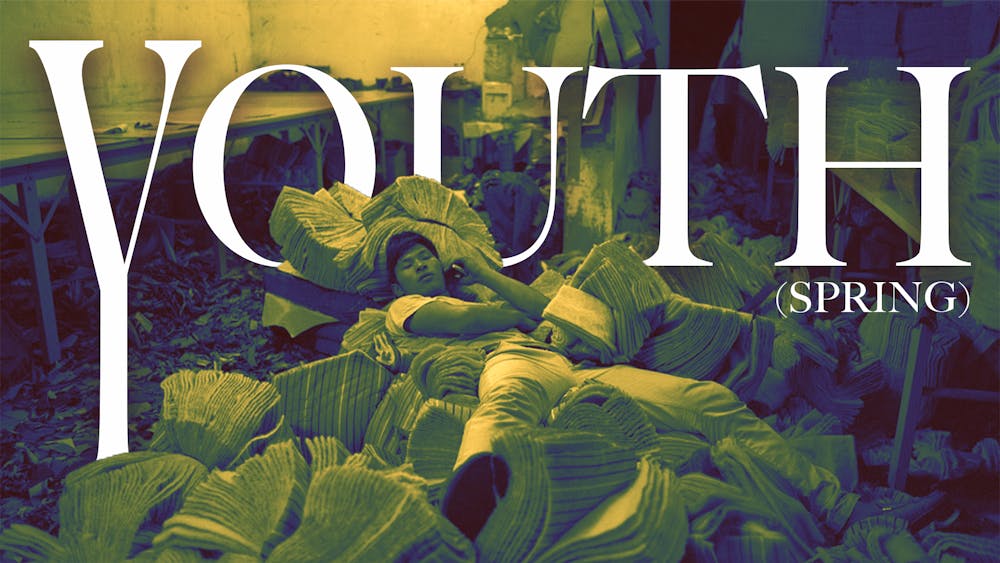The Cannes Film Festival is addicting. Not just because of the luxurious assemblage of the grandest and most star–studded films of the year, all demanding one's attention, but because it's combined with the frantic atmosphere of a carnival. Covering the festivity for a Chinese media outlet, I attended the 76th Cannes Film Festival this May. Every morning—even after a mere four hours of sleep—in a small apartment I shared with four other reporters, I was instantly energized by yet another day exclusively dedicated to a cinematic world: where every conversation, every chance encounter, belonged to a magical experience.
At Cannes, cinema completely takes over one’s mind. The only actual worry is making sense of the labyrinthine timetable and trying to squeeze just one more screening into a day already full of events. This is immensely gratifying for any cinephile. The world ceases to exist and only the screen remains intact. But the cinematic world doesn't exist in a vacuum, despite the effort put in to making it seem that way at a place like Cannes.
When watching Wang Bing’s latest documentary Youth (Spring) on the lives of young textile workers in a small Chinese town of Zhili, it is hard not to remember the ongoing labor protest due to the recent pension reform in France and local authorities’ ban on rallies in much of Cannes. Or when watching a Senegalese narrative film on female empowerment, Thierry Frémaux’s remark that he only “cares about Johnny Depp as an actor” becomes much more troubling and even problematic. The knowledge that many of the films being screened, for the pleasure of the attendees, are born from reality and decisively tackle social issues sharply contrasts with the festivals’ ceaseless attempt to separate art from the rest of the world.
The Cannes Film Festival is also an incredibly difficult ticket to get. Flaunting its status as a temple of cinema that celebrates film as the glitziest art form there is, Cannes is a notoriously exclusive event reserved for the stars, the press outlets, and the industry personnels. The program “Three Days in Cannes”—introduced just recently in 2018—is the only access for people outside of the industry, and even it limits participants to a time frame of three days and an age range between 18 to 28. A badge, in this sense, becomes another tool to filter through those who promote the hierarchy and thus belong in it.
The premiere system also contributes to this hierarchy of art and who can see it, as the greatest allure of coming here is to see a film before anyone else in the world can. It may even give one a certain sense of superiority. Someone would have to spend long hours waiting in line just to see Martin Scorsese or Wes Anderson’s newest entry in the Grand Auditorium Louis Lumière, while people with badges of higher category could walk inside at ease—the crux of the event is not about seeing a film or missing a film, it’s how gatekeeping, power hierarchy, and discrimination are normalized in the almighty name of cinema.
While seeing the faces of the textile workers, their joys and sadnesses, on the enormous screen of the auditorium, I was among some of the wealthiest people on Earth. The realization that absolutely no one in the audience could have similar experiences, or could even empathize with them was startling, rendering that experience of premiere immensely surreal. This isn't to say that the wealthy are not entitled to watch a film if they have no personal connection with the subject matter—films are meant to bring us to worlds we’ve never seen or experienced before—but it is a poignant reminder that a film festival could and should never be depicted as some sacred land of cinema, which is conveniently removed from all the problems of the real world.
It should be a microcosm of our world. We watch films in order to find strength to face reality, not run from it. The narrative of “art for art’s sake” is problematic precisely because of the shared knowledge that films originate from reality, and one should never build a wall to separate art from everything else. Johnny Depp as a human being is inseparable from his job as an actor, just as the war in Ukraine, the protests in France, and the textile workers in Zhili are no less important than the starlight, fame, and glory of the king of all film festivals. At the end of Youth, after four hours of staring into the daily routine of a group of people we may never cross again halfway across the planet, Wang Bing thanked all the workers “for their splendid life.” Maybe we should do the same.







